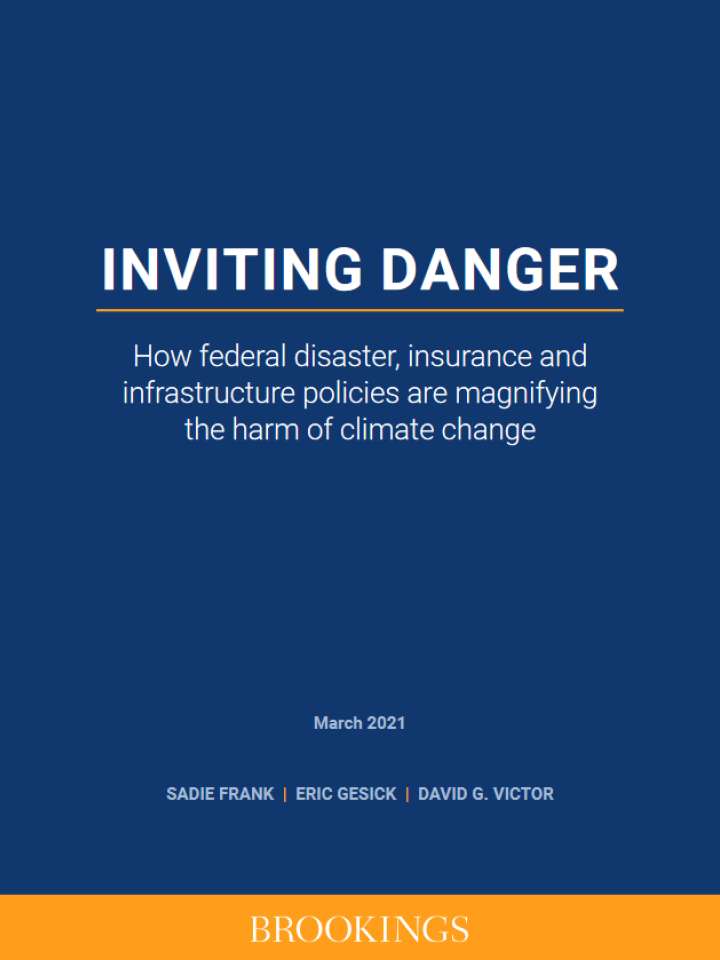Inviting danger: How federal disaster, insurance and infrastructure policies are magnifying the harm of climate change
This publication discusses how many government policies create incentives for people to make economically detrimental decisions, including settling and building on land exposed to hurricanes, floods, and wildfires. It introduces a framework for analyzing how federal spending patterns under current and possible future policies may shield or remove individuals, firms and local governments from some of the financial harm created by decisions they take—what economists often call “moral hazard.”
It shows a framework for looking at individual policies and government programs according to how they affect the damages associated with natural disasters. It focuses on the subset of those disasters that could be affected by climate change and thus exclude earthquakes, tsunamis and others whose incidence is unlikely to change in a warmer world. The value of a framework is the ability to look across the entirety of the federal government. Quantifying the exact impact of the misallocation of risk costs, or moral hazard aspects of these programs is very difficult not just because they are diffused across government but also because the programs that create these adverse incentives co-mingle worthy policy goals (e.g., protecting vulnerable populations that are living on the edge already) with unintended consequences that can create moral hazard and shift the costs of that hazard to the federal government.
The publication outlines reforms, with an emphasis on the value of tracking the difference of recovery vs. resilience spending so that the full picture (and its potential imbalances) can be understood. It also suggests that reforms are most likely in the context of crisis, and thus there is a need for realism about when reforms can be accomplished—laying the foundation of more situational awareness and more politically savvy reform packages will lay the groundwork for change when the opportunity arises.
Explore further
